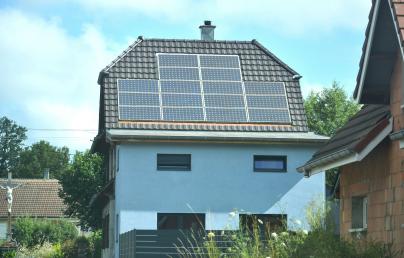
Retabit: A Data-Driven Platform for Urban Renewal and Sustainable Building Renovation

Retabit: A Data-Driven Platform for Urban Renewal and Sustainable Building Renovation
Retabit is a data-driven platform that supports building renovation and urban regeneration by integrating energy, economic, and social factors. It offers tools to analyse conditions and plan interventions, aiding stakeholders in aligning projects with sustainability and climate goals.
RETABIT is a platform that supports integrated analysis and planning of renovation projects, aiming to facilitate the decarbonisation of the building stock and promote sustainable urban development. It is a data-centric platform that facilitates the integration of building renovation into broader urban regeneration strategies by combining energy, economic, and social indicators within a unified system. Drawing from public data sources, it provides actionable insights to local and national authorities, public housing agencies, urban planners, energy service providers, and research institutions—helping to align renovation initiatives with broader urban transformation goals and climate action objectives.
The platform emerges as a response to the increasing regulatory requirements, at the national and European levels, aimed at decarbonising the building sector within the context of sustainable development. With many European regulations expected to be mandatory for Member States, regions, and municipalities, having tools that integrate relevant data and indicators across multiple levels of decision-making and territorial scales is essential to align local planning with European objectives. In this regard, the Retabit platform can play a crucial role within public policy frameworks by facilitating coordination among different levels of government and promoting a cohesive response to sustainability and energy transition guidelines.
The Retabit platform is a two-tiered system consisting of the following components:
- Analyse—facilitates the exploration of building stock conditions within a municipality using integrated available data. It is designed for a broad audience interested in sustainable urban data and performance indicators, including local and national authorities, public housing agencies, urban planners, energy service providers, research institutions, and others.
- Plan—enables professionals and decision-makers to design targeted renovation projects and assess the impact of proposed measures using simulation tools. It is intended for specialised practitioners such as municipal technicians, energy consultants, and public-sector officials.
The Retabit platform represents a forward-looking approach to extend the scope of UBEMs beyond energy assessments. The platform incorporates a broader range of indicators—spanning social, economic, and environmental dimensions—and enables more flexible, user-driven exploration of data. This integrated and interactive framework supports not only technical analysis but also strategic decision-making and stakeholder collaboration, pointing toward more holistic and adaptive urban renovation planning. By incorporating energy, economic, and social dimensions into one unified framework, the platform bridges the gap between building rehabilitation and urban regeneration. This integrated approach makes Retabit a powerful tool for cities aiming to achieve both climate goals and sustainable urban development, ensuring that building rehabilitation catalyses holistic urban transformation. In this way, Retabit directly addresses the challenges identified in the EPBD and the EEA reports, offering a robust platform for data-driven, multi-level renovation strategies at both building and district scales.
Retabit A Data Driven Platform for Urban Renewal and Sustainable Building Renovation.pdf
English (7.17 MB - PDF)